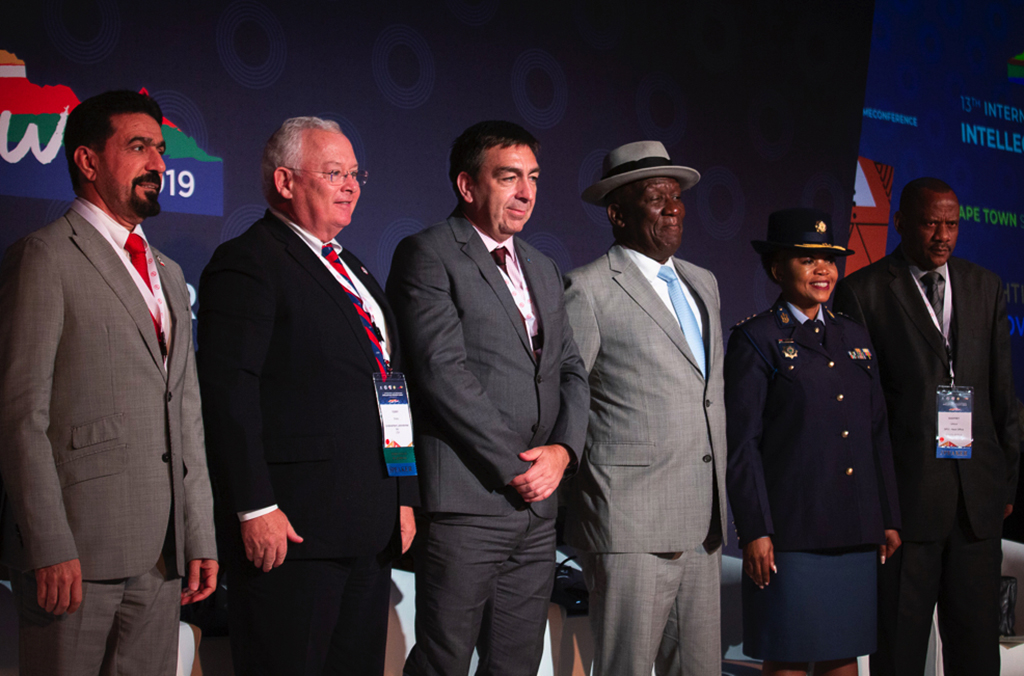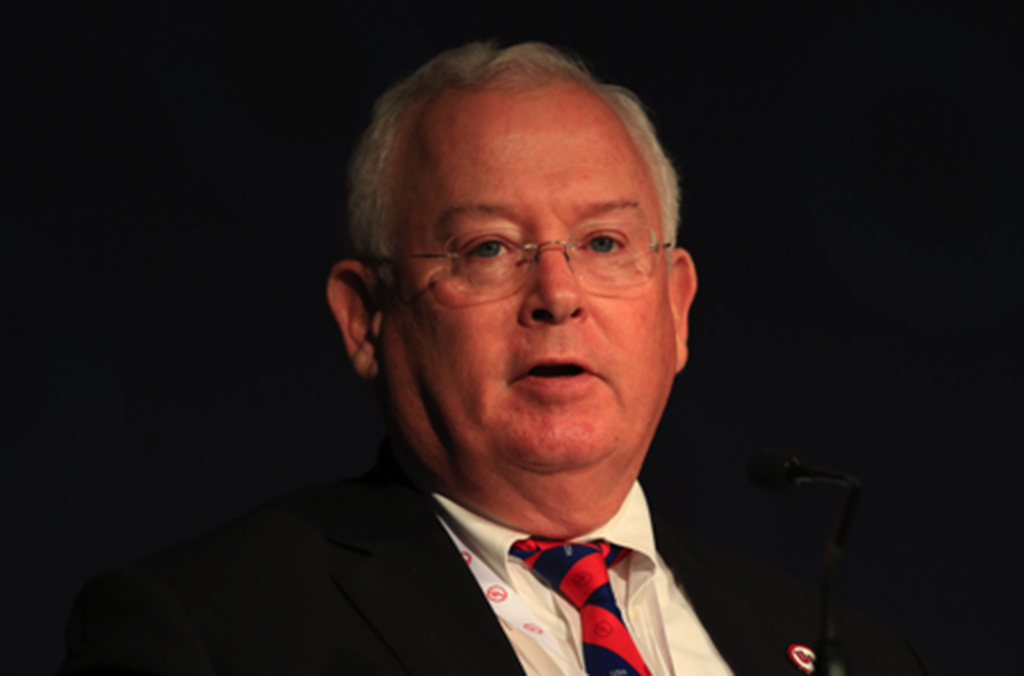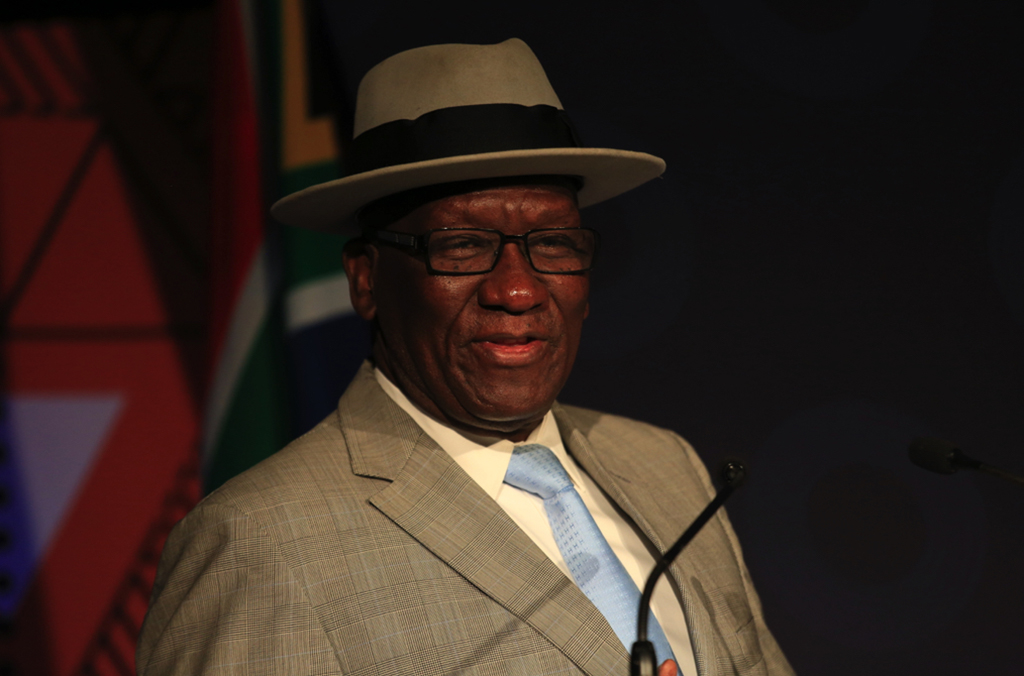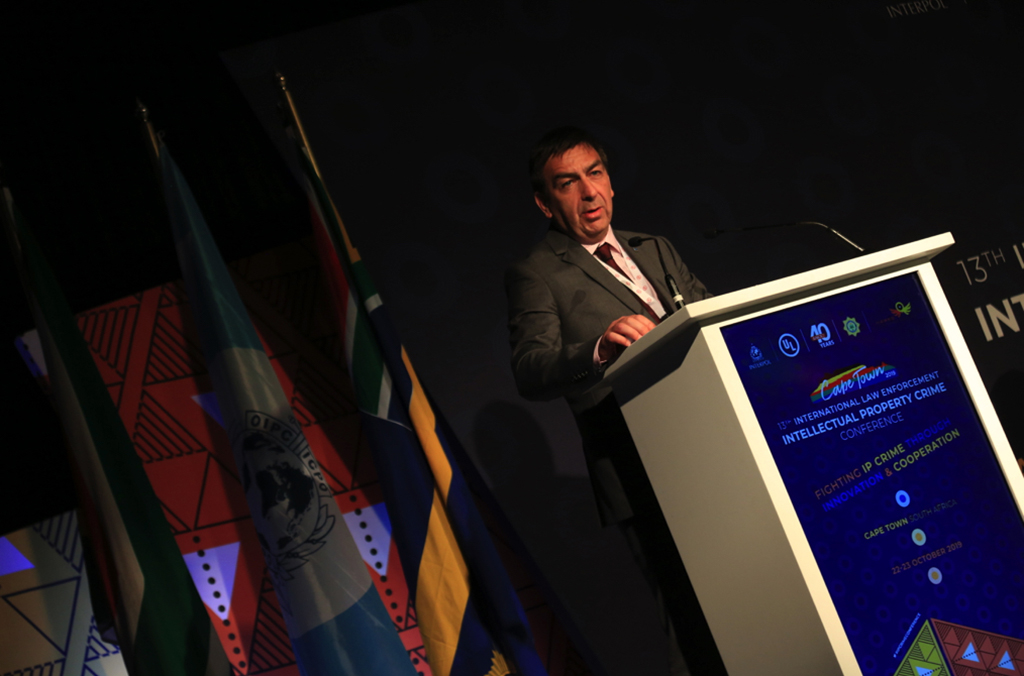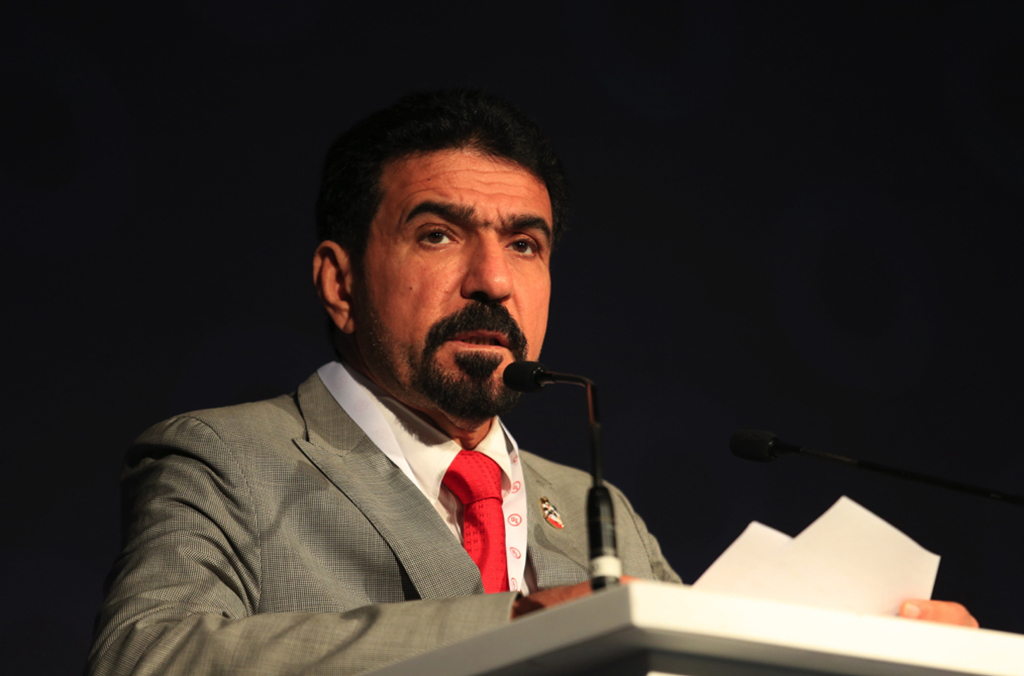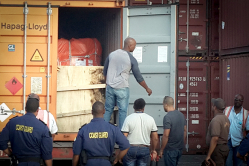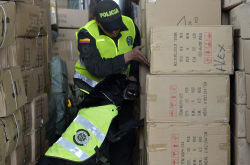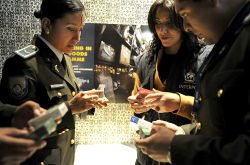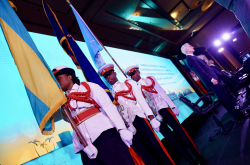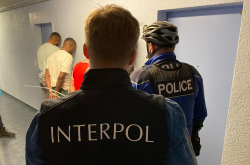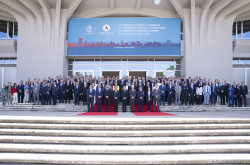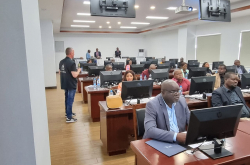CAPE TOWN, South Africa – The trade in fake and pirated goods is a serious transnational organized crime run by extensive and complex criminal enterprises, affecting all sectors of society worldwide.
To counter this evolving threat, more than 500 senior law enforcement officials, security and industry experts from more than 80 countries are meeting at the 13th International Law Enforcement Intellectual Property (IP) Crime Conference to shape effective enforcement strategies.
INTERPOL and the Directorate for Priority Crime Investigation, South African Police Service (SAPS), are co-hosting the two-day (22 and 23 October) event in Cape Town, in partnership with UL (Underwriters Laboratories) and the International AntiCounterfeiting Coalition (IACC).
“This conference provides a superb opportunity to share knowledge and experiences to strengthen the foundation for future cooperation. While we know there is no one size fits all type solution to the problem of intellectual property crime, our greatest strength comes from our commitment to work together to confront this insidious global challenge that threatens local and economic growth,” said South Africa’s Minister of Police, General Bheki Cele.
Innovation and cooperation
With IP crime generating huge profits and organized criminal groups constantly seeking new opportunities to distribute their illicit products, participants at the conference will also highlight the need for law enforcement and other stakeholders to collaborate and innovate in response.
“The illicit counterfeit trade within its various commodities has evolved into a transnational organized crime operation with tentacles that stretch into various forms of organized crime,” said the SAPS National Commissioner, General Khehla John Sitole.
Underwriters Laboratories President Terrence R. Brady said: “For innovation to flourish, we must have an environment where people can openly discuss challenges, freely cooperate, share ideas and create strong partnerships. By working together, we can generate ideas and become true innovators, which will deliver solutions to help create a safe, secure, sustainable and fake-free world.”
"Innovation and cooperation are two necessary components for winning the battle against fakes. Each year the IP Crime Conference challenges us to incorporate both of these when developing solutions to the counterfeiting problem," said IACC President Bob Barchiesi.
Enforcement actions
INTERPOL coordinates regional and global law enforcement operations in the field to help its member countries remove illicit products from circulation and dismantle the networks profiting from these crimes.
“Since making money is the key incentive for criminals involved, we must remove its appeal by increasing the risk of prosecution and seizing their assets,” said Paul Stanfield, INTERPOL Director for Organized and Emerging Crime.
“A better joint intelligence picture is also necessary to counter IP crime. Intelligence is vital to all our activities and we strongly encourage police and partners to share their data systematically with INTERPOL,” added Mr Stanfield.
With unregulated and counterfeit medicines targeting the most vulnerable in particular, international operations coordinated by INTERPOL include Operation Pangea, against illicit pharmaceuticals and medical devices sold online. Its latest phase in October 2018 highlighted how criminals are now shipping packages containing smaller numbers of pills and tablets.
Personal care items, office supplies, tobacco, agrochemicals and electronic accessories were among the illicit goods seized during Operation Maya III, undertaken in Central and North America and the Caribbean in April 2019.
INTERPOL and Europol also jointly coordinate the annual Operation Opson to remove counterfeit and substandard food and drinks from the market.
Online training platform
In partnership with UL, INTERPOL has developed a global online training platform, the International Intellectual Property Crime Investigators College (IIPCIC), which has more than 22,000 registered users from more than 170 countries.
Participants at the conference will hear how one of the most effective ways to boost a country’s response to IP crime is to incorporate IIPCIC training into police college curriculums.
In this respect, the decision by police chiefs in a number of African member countries to incorporate IIPCIC modules into their police training academies is set to enhance the prevention, detection, investigation and prosecution of IP crime in the region.




